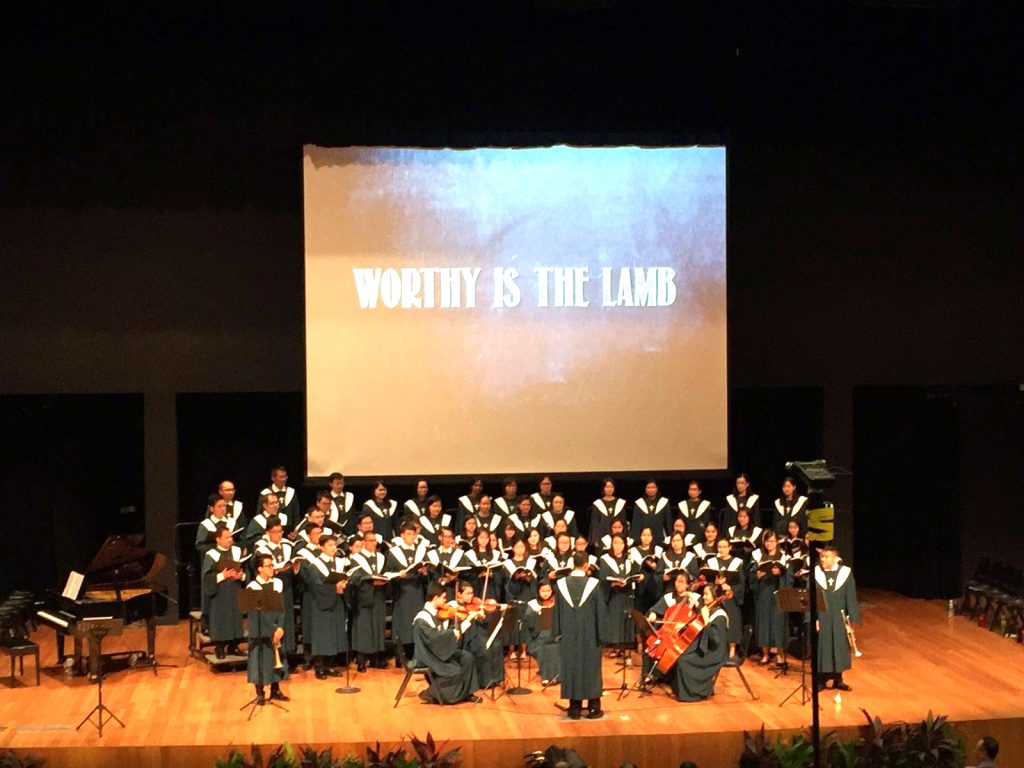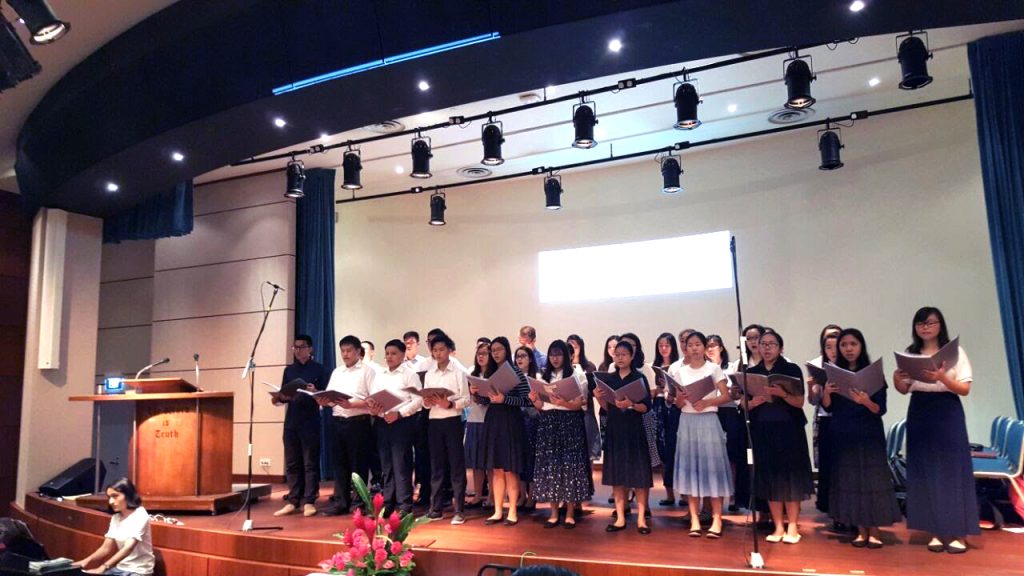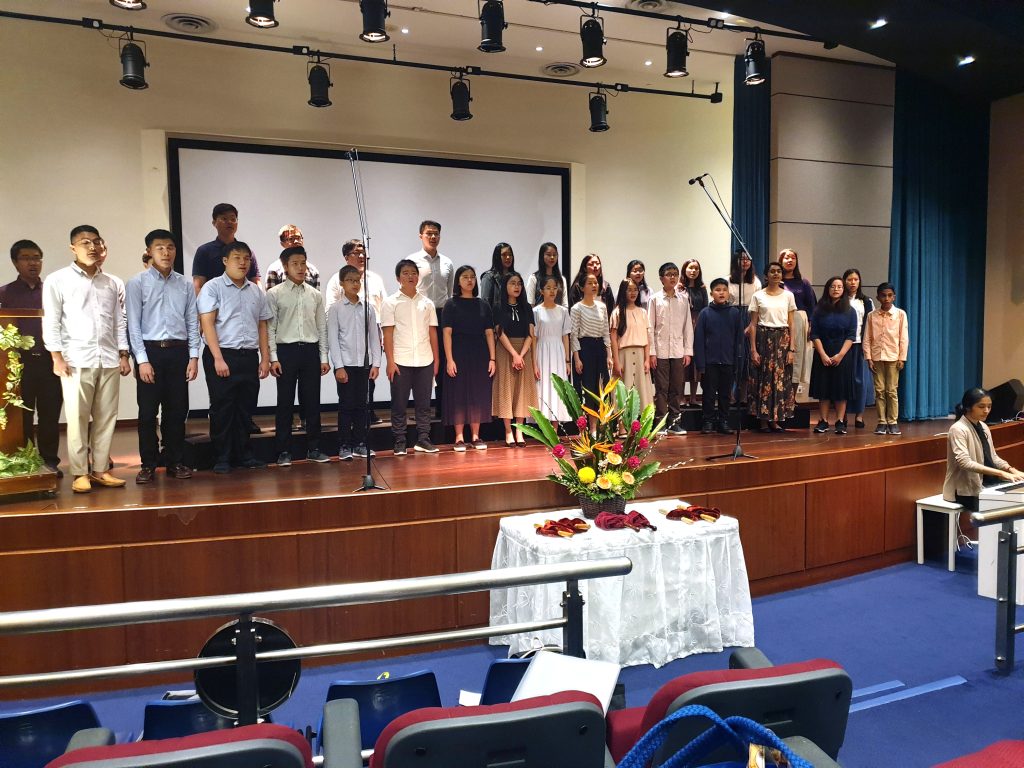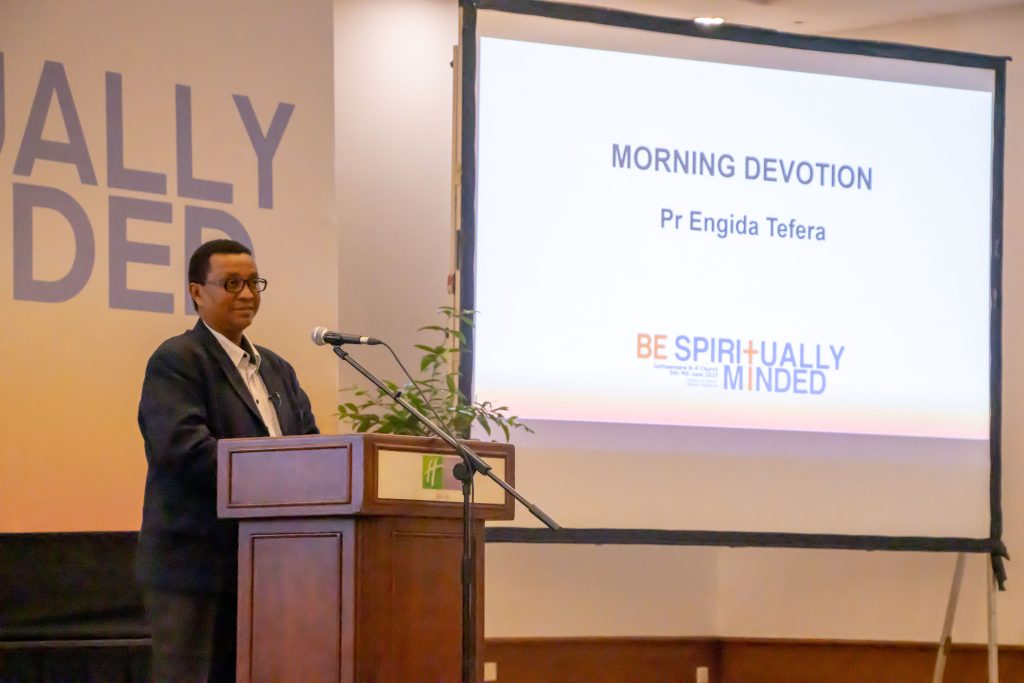Hostility, quarrel, acrimony, threats, slander, and hurtful actions have wrecked many a church; and such stories have saddened us deeply. If we do not guard ourselves against sin and self-promoting ways, our congregation will be wrecked with dissension. Today, I would like to share with you, Scripture’s counsel on guarding ourselves against disunity and division. Let us also take heed to pray that “there be no divisions among [us]; but that [we] be perfectly joined together in the same mind and in the same judgment” (1 Cor. 1:10).
Disharmony and disunity have existed in the church since New Testament times. The church in Corinth, for one, was most disreputable for its quarrels.
Why Do People Quarrel?
“From whence come wars and fightings among you? come they not hence, even of your lusts that war in your members?” (James 4:1). Quarrels have long been part of human society. The source of all fightings is man’s sinful heart. Man’s depraved, egoistic nature is the root of all discord and dispute. “For out of the heart proceed evil thoughts, murders, adulteries, fornications, thefts, false witness, blasphemies” (Matthew 15:19). Man is predisposed to his personal desires and whims. Unless believers “put off all these; anger, wrath, malice, blasphemy, filthy communication” (Colossians 3:8), they would also be tempted to live for self-interest and self-glory, resulting in bitterness and acrimonious conduct. When two or more people are determined to pursue their own personal agendas, they will soon begin to fight.
Church and Quarrels
Sadly, uncharitable contentions do occur in the church. Paul wrote to the Corinthian church: “For first of all, when ye come together in the church, I hear that there be divisions among you; and I partly believe it” (1 Corinthians 11:18; cf. 1:11) – the reason being that “ye are yet carnal: for whereas there is among you envying, and strife, and divisions, are ye not carnal, and walk as men?” (1 Corinthians 3:3). Here, Paul is not saying that believers were in a totally carnal state, but that the Corinthians had been behaving in a carnal or fleshly manner. When believers do not walk in the Spirit, they succumb to the impulses of the flesh. This is why believers are reminded: “Walk in the Spirit, and ye shall not fulfil the lust of the flesh. For the flesh lusteth against the Spirit, and the Spirit against the flesh: and these are contrary the one to the other: so that ye cannot do the things that ye would” (Galatians 5:16-17).
It is totally out of character for Christians to engage in quarrels and divisions within the church. It undermines the church’s testimony and effectiveness in the world. It gives an occasion for the devil and the world to scorn the church. It grieves the Lord; it discourages and demoralises His people. In Galatians 5:15, Christians are admonished: “But if ye bite and devour one another, take heed that ye be not consumed one of another.” Quarrels fracture fellowship, rob Christians of their joy, weaken their effectiveness and dishonour the Lord. What a high price to pay for an ego trip!
Church and Unity
God has forbidden quarrels in the church. Instead, He encourages unity within the church. In 1 Corinthians 1:10, Paul admonished the feuding Corinthians: “Now I beseech you, brethren, by the name of our Lord Jesus Christ, that ye all speak the same thing, and that there be no divisions among you; but that ye be perfectly joined together in the same mind and in the same judgment.”
The first need of the Corinthian church was harmony among its people. It is also the need of many churches today. Note that this unity comes with proper judgment, being of “the same mind and … the same judgment”. Anything less is not true spiritual unity. Hypocritical unity that tolerates doctrinal errors and unholy living is not what is taught here. We are not simply to be in unity indiscriminately and avoid all conflicts, though people pursue ungodly doctrines and unscriptural living.
When congregants differ in doctrine or strongly disagree with the church leadership and policies, they cannot contribute to the spiritual unity of the church nor serve effectively. Of course, believers are not “carbon copies” of each other. They differ in disposition, temperament, skill and giftedness, but they should be of the same mind in Christian doctrine and living.
If any kind of difference or dispute occurs, it must be resolved according to the Scriptures. Church leaders, who are men of knowledge and spiritual maturity, must make it a point to prayerfully attend to those issues, and advise the church what “seemed good to the Holy Ghost, and to [them]” (Acts 15:28). No arbitrary ruling should be made, but the Board of Elders must make their decision unanimously, and in accordance with God’s Word under the guidance of the Holy Spirit. Their godly counsel must then be humbly sought and obeyed, for Scripture commands believers to “Obey them that have the rule over you, and submit yourselves: for they watch for your souls, as they that must give account, that they may do it with joy, and not with grief: for that is unprofitable for you” (Hebrews 13:17). Faithful believers then must be in complete harmony with their leaders to obey God’s will. When elders are one in the Spirit, the congregation should submit to the directions given to them by the elders.
Such unity would require much effort and prayer. But it is God’s way for His church to enjoy the sweet blessings of unity, as Paul said to the Philippians, “Fulfil ye my joy, that ye be likeminded, having the same love, being of one accord, of one mind” (Philippians 2:2). Let us remember the psalmist’s praise of brotherly unity – “Behold, how good and how pleasant it is for brethren to dwell together in unity!” (Psalm 133:1).
Dear Gethsemaneans, let us always endeavour to keep the unity of the Spirit (Ephesians 4:1-6), and make Paul’s prayer for the Roman church ours: “Now the God of patience and consolation grant you to be likeminded one toward another according to Christ Jesus: that ye may with one mind and one mouth glorify God, even the Father of our Lord Jesus Christ. Wherefore receive ye one another, as Christ also received us to the glory of God” (Romans 15:5-7).
Church “Without Murmurings and Disputings”
Philippians 2:14 exhorts, “Do all things without murmurings and disputings”. We are dissuaded from engaging in two evils, namely murmuring and disputing. Interestingly, the apostle is concerned that some may engage in spiritual activities with murmuring and disputing. In other words, they practise religion without sincerity and joy. When God-given duties are done with murmuring and a disgruntled spirit, such service will be unacceptable. So, all Christians must guard themselves against such evil conduct. Both of those sins must be abhorred and avoided if our services are to be effective and helpful.
Some murmur against God and His servants, like the Israelites in the wilderness when experiencing a time of scarcity. In Numbers 11, we read about them: “And the mixt multitude that was among them fell a lusting: and the children of Israel also wept again, and said, Who shall give us flesh to eat? We remember the fish, which we did eat in Egypt freely; the cucumbers, and the melons, and the leeks, and the onions, and the garlick: but now our soul is dried away: there is nothing at all, beside this manna, before our eyes” (vv. 4-6; cf. Exodus 15:24; 16:7-9).
Others murmur because they are discontented with and envious of the godly men and women whom God uses (cf. Numbers 14:1-4; 16:41; Mark 14:5). There are also some others who murmur because of their unbelief and their bigoted desire to spread their sedition (cf. Luke 15:2; Jude 16).
The spirit of murmuring is perilous. The Word of God cautions us, “Neither murmur ye, as some of them also murmured, and were destroyed of the destroyer” (1 Corinthians 10:10). Murmuring is often the result of envy, discontentment, bitterness, pride and unbelief. It results in many evil deeds, such as gossip, backbiting, slander, usurping of authority, defiance, sedition, dissension and schism. Murmuring is not just a dispute with man, but also with God! So, serve the Lord without any murmur or dispute.







